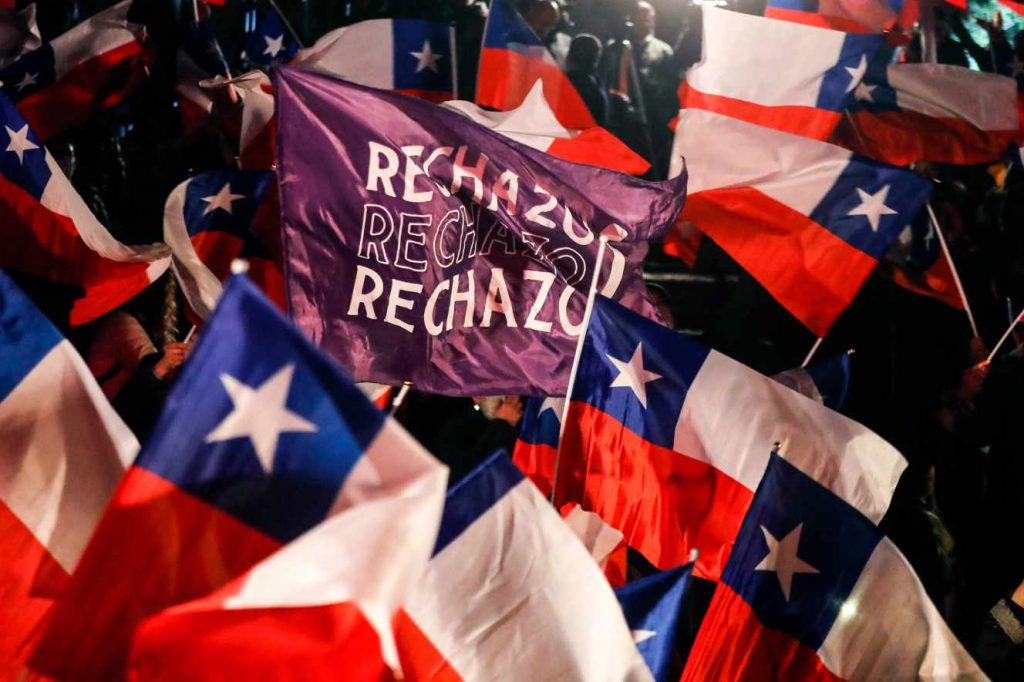
By Sofia Schonenberg, 2L
On September 4th, a massive turnout of Chilean voters overwhelmingly rejected a newly proposed progressive constitution. Nearly thirteen million of the fifteen million eligible voters voted against the referendum calling for wider representation. According to the Chile Electoral Service, 62% of voters rejected the proposed constitution supported by leftist President Gabriel Boric. The official rejection announcement on what would have been one of the most progressive existing constitutions left opponent crowds celebrating in the streets and advocates disappointed.
The current constitution was written under the Pinochet military dictatorship that controlled the nation from the early 1970s through the 1990s until democracy was restored. While large political transformations have historically resulted in constitutional adjustments in the region, Chile’s constitution has remained unchanged. Demands for a rewritten constitution began in 2019 after nationwide protests swept the nation following a metro fare increase. In 2020, the proposed change was initiated by former president Sebastián Piñera following social unrest. A majority of voters approved a plebiscite and subsequently voted to name members for a constituent assembly the following year. This proposal included a staggering 388 articles that expanded social rights, extended the government’s role in social welfare, eliminated the Senate, increased environmental regulation, and defined Chile as a “plurinational” state with Indigenous groups recognized as their own nations.
Departing from the early international recognition Chile received for its institutional response to the social unrest, this rejection leaves a weaker Boric government that will have to tackle the divisions that have permeated throughout the proposal process. Rejection has been largely attributed to multiple factors, including the fear that the Boric government is shifting the traditionally conservative country too far left on the political pendulum. There is also a fear of governmental inefficiency with the lengthy changes, and overall how the changes would affect Chile’s participation in democracy and the free market economy. Others have pointed to disinformation and scandals that further stoked distrust, likely contributing to the most ecologically-susceptible areas known as “sacrifice zones” voting against the proposal that they were not sufficiently connected to. Additionally, commentators have also credited the rejection to Chile’s updated election rules, which took effect this year. The mandatory voting requirements increased voter turnout from fifty-one percent in 2020 to eighty-six percent in 2022, likely drawing more undecided voters to vote in favor of the existing constitution. These voters would otherwise not have voted.
President Boric acknowledged the voters’ message and responded by appointing centrists, hoping to demonstrate a centrist shift away from the left. President Boric praised the participation in the democratic process and vowed to continue working toward a new proposal to reflect broader interests, moving on from a dictatorship past with his opposition expressing similar sentiment for future proposals. Although most voters opposed this iteration, this may not be the case for future proposals. While the future of the proposal process is uncertain, Chile’s constitutional limelight is likely far from over.




